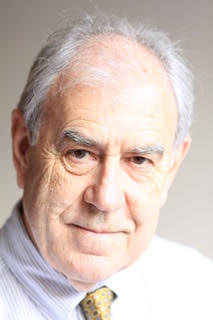RICHARD BUTLER. Putin is different.
October 28, 2016
A special issue of the Bulletin of the Atomic Scientists, just published, focuses on the deteriorating US-Russia relationship. It poses the question of whether a new Cold War has started and publishes a range of relevant, articles.
The article by Fiona Hill, Director of the Center for the United States and Europe at the Brookings Institution is impressive ( thebulletin.org, volume 72, issue 3). It discusses Vladimir Putin’s origins, nature, what he has become, the nature of the state he runs, and most importantly how he views the US and other western countries.
Having traced Putin’s political origins in the St Petersburg government and the KGB, she defines him as “the operative as autocrat”, asserting that he is “without precedent either in Russian history, or at the top of a modern state anywhere in the world”.
Conventional western analytical approaches don’t yield a useful understanding of Putin or suggest effective ways of dealing with him. On the other hand, Hill asserts that, because of his formation, Putin has a surprisingly limited understanding of the West: “ a very incomplete grasp of what motivates or drives Western leaders and the contexts in which they operate”.
There is significant mutual incomprehension.
On that point, Hill provides a fascinating insight into a language issue: “Putin’s language is loaded in Russian – a simple translation into English of what he says does not convey the deeper meaning behind the words and expressions”. Western interlocutors and audiences are likely to misunderstand key messages. Putin has a similar difficulty with western messages, in particular those from the US.
The central portion of Hill’s article is entitled “Seeking Security”. It describes Putin’s assessment that the US continues to threaten Russia and means it harm. The reasons given for his view are credible.
President Obama’s 2014 description of Russia as no more than “a regional power” was received with deep offense and possibly fuelled Putin’s determination to act beyond Russia’s “near abroad”.
On the critical question of what does Putin want, globally, Hill’s answer is “ his big mission is to get Russia a seat at the table with the West, on Russia’s terms which he declares is on “equal” terms with the United States.”
Her prescription of how others should deal with this unique leader is to negotiate with him. Unlike important advisors and centers of influence in Washington, today, she does not suggest that a desirable policy towards Putin would be to threaten him. That would simply conform to stereotype and lead to serious conflict.
Richard Butler AC was Ambassador to the United Nations and later, Diplomat in Residence at the Council on Foreign Relations, New York.

